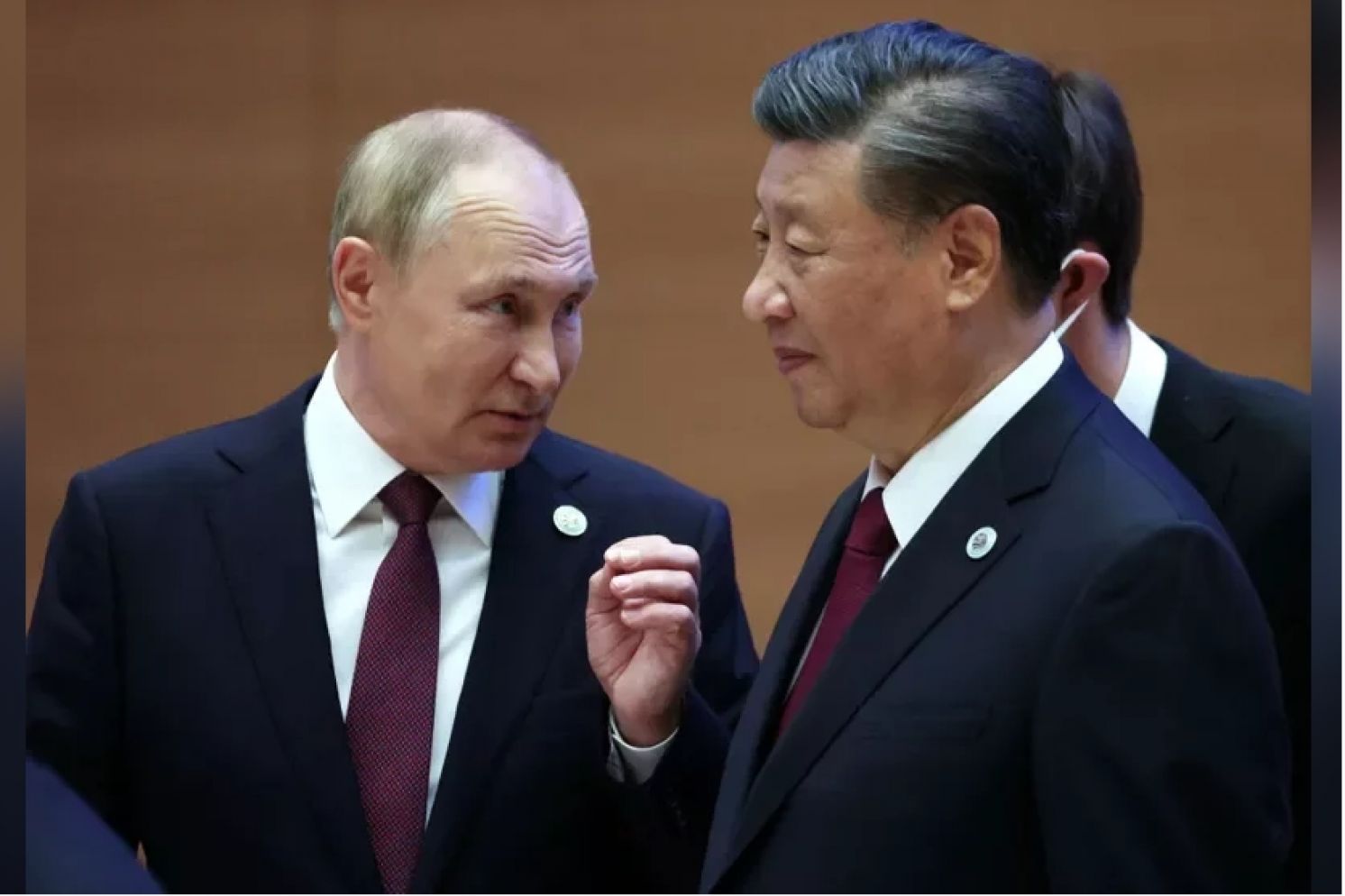
Xi-Putin Summit:U.S. and Taiwan Push Xi Towards Putin
United Daily News Editorial, September 18, 2022
While Taiwan is focused on the “Taiwan Policy Act 2022” passed by the United States Senate Foreign Relations Committee, the Shanghai Cooperation Organization (SCO) summit, which is making its debut in Samarkand, Uzbekistan, is also worth attention. The content of the Taiwan Policy Act 2022 has received common concerns from the United States, China, and Taiwan. The meeting between Chinese President Xi Jinping and Russian President Vladimir Putin on the sidelines of the SCO summit has obviously attracted the attention of Western countries. Taiwan should pay attention to the fact that although these are two independent events, the “Xi-Putin summit” has been somewhat pulled and stimulated by the progress of U.S.-Taiwan relations.
The Xi-Putin summit is already the 39th meeting between President Xi Jinping and President Putin since Xi became president in 2013, and the two sides have interacted frequently for a long time. In particular, this is not only Xi’s first foreign visit since the COVID-19 pandemics, but also the first meeting between the two since the Russia-Ukraine War, so it has attracted special attention. Putin told Xi that Russia adheres to the “One-China Principle” and condemns the United States for provocative actions on the Issue of Taiwan, which involves China's core interests. Xi praised Russia for adhering to the One-China Principle, stressing that Taiwan is a part of China, that China resolutely opposes Taiwan independence separatist forces and external interference, and that no country has the right to be the magistrate of the Taiwan Issue.
In viewing to the progress of U.S.-Taiwan relations, the political signals released by the Xi-Putin meeting fully shows that Taiwan has become increasingly involved in the fierce competition of geopolitics. In the past meetings the “One China” principle has been reiterated, a bit like a routine ritual, for the conference. However, this time in Samarkand, faraway from Taipei, Xi talked about the Taiwan Strait issue in a targeted manner to the United States, which obviously has a different meaning.
Western countries generally believe that this Xi-Putin meeting, due to the severe economic sanctions toward Russia from the United States and Europe, little progress in the Russian-Ukrainian battlefields, and even the Ukrainian counter-offensive was somehow successful, Putin needs more from Xi. Yet, Xi also needs Putin and the Shanghai Cooperation Organization. The groups led by the United States, such as the Five Eyes Alliance, the Quadrilateral Security Dialogue (QUAD), the Trilateral Security Agreement (AUKUS), and the Indo-Pacific Economic Framework, all of which are aimed at China. In particular, after the Russia-Ukraine War, the United States and European countries projected the situation between Russia and Ukraine on the Taiwan Strait and threatened to strengthen their intimidation against the Chinese Communists. The United States wants to use Ukraine to drag down Russia, which also makes Xi more vigilant about the United States' cross-strait intentions.
Putin's statement on the Taiwan Strait issue did not disappoint Xi. In contrast, Xi seems to have reservations about the Russia-Ukraine war. Putin can only express his understanding of China's problems and concerns in this regard and cherish China's balanced position on the Ukraine crisis. China clearly does not have the military assistance to Russia that the United States worries; yet Russia is at least satisfied that Russian-Chinese trade will break through the record high of USD $200 billion. Russia, which has been subjected to economic sanctions, finds important exports in China; China, on the other hand, has made significant gains in energy and economy and trade. Xi and Putin not only discussed trade sanctions, but also jointly studied how to deal with the trade war.
Although China, Russia and the SCO advertise non-alignment and do not target other countries and international organizations, in the eyes of the West, they are still a group with mutual needs. However, it cannot be ignored that when NATO absorbed Sweden and Finland, the SCO also said that more than ten countries are waiting to join. The NATO's eastward expansion has led to the Russia-Ukraine War, and the expansion of the SCO has filled the power vacuum in Central Asia after the United States hastily withdrew its troops. Putin described the SCO as already the world's largest regional organization; and Xi called on member states to support each other, prevent external forces from instigating color revolutions, and jointly oppose interfering in other countries' internal affairs under any pretext. This SCO summit seems to have more geo-competitive significance than those in the past.
Under the framework of the great power game and the new Cold War, Taiwan is becoming a more international issue, and the administration of President Tsai Ing-wen has taken the initiative to embed Taiwan into geopolitical competition. Taiwan may have more opportunities, yet it is also facing more crises. It is difficult to predict now whether it is a blessing or a disaster, but Taiwan has lost its subjectivity more and more. Just like the U.S. Taiwan Policy Act provides Taiwan free military aid, Taiwan's military build-up direction and national defense autonomy will all be disarmed. What President Tsai Ing-wen gladly thanked for are just those President Chiang Kai-shek had rejected, that is, a trade of military aid with national defense autonomy. The U.S.-China guardrail is already in jeopardy, but the United States and Taiwan are still trying to push Xi closer toward Putin.